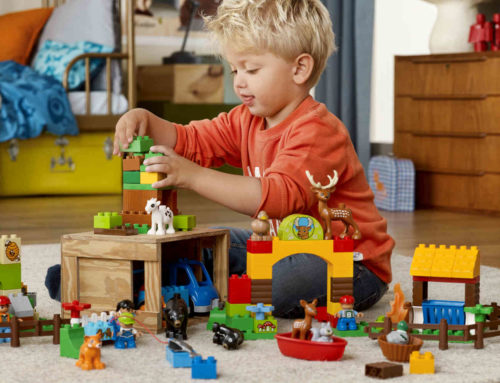As a profession, speech pathology is often misunderstood.
Some people think I teach elocution – you know, the whole “how now brown cow” caper. Others think I write speeches and train people in public speaking for a living. Some think I’m a tutor and others think they’ve got it spot on when they ask me about working with children who lisp and stutter all day.
It’s confusing! I get it. I am a paediatric speech pathologist and I had no idea the field even existed until I started studying it. So to try and clear up some of the confusion and increase awareness about who we are and what we actually do, here are 10 things paediatric speech pathologists want you to know…
1. We don’t just treat lisps
Speech pathologists actually diagnose and treat a wide range of communication disorders including difficulties with speech, language, literacy, fluency (stuttering) and voice. We work with children who have difficulties communicating due to developmental delays, brain injuries, learning disabilities, intellectual disabilities, hearing loss as well as other problems that can affect speech and language. Something else that most people don’t know is that we are also trained to work with children who have feeding and swallowing difficulties, such as infants struggling with the transition to solids.
2. When we talk about “language” we don’t mean English/Italian/Vietnamese etc.
We are really referring to two things when we talk about “language”… receptive language and expressive language.
Receptive language relates to the ability to remember and understand what has been said and is more commonly referred to as comprehension. Children who have receptive language difficulties may appear as though they are not listening or are not interested when they are spoken to or when books are read to them. They may be unable to remember or follow verbal instructions and may be unable to understand questions and sentences.
Expressive language refers to the ability to convey information verbally, in writing as well as via sign language or gestures. Children who have expressive language difficulties may not use correct grammar, may produce very short phrases and sentences, and may have a small vocabulary.
A language problem may also be described as a Language Disorder, Language Delay or Language Impairment. Language disorders are so common that they affect up to one child in every class and are as common as dyslexia and more common than autism. It is estimated that between 3 and 5% of children have a receptive or expressive language disorder, or a mixture of both.
3. No two cases are ever the same
We know most people are only trying to help when they say things like, “Don’t worry, boys talk later than girls”, or “Your mother didn’t say a word until she was 5 and then she just spoke in full sentences”. Well-meaning advice such as this is problematic because no two children are the same. On the surface it may seem like two children have the same problem, such as two boys who are not pronouncing the “s” sound properly in words. However only a trained speech pathologist will be able to assess and diagnose that the first child cannot produce “s” because of an articulation disorder whereas the second child cannot produce “s” due to a phonological disorder. They may sound the same but their issues are different and therefore their treatment will be different too. Speech pathology is not a one size fits all experience.
4. It’s not a good idea to “wait and see”
It is never too early to speak to a speech pathologist if you have concerns. We understand how scary it can be for parents to think that something is not quite right with their child’s development. We also understand that parents don’t want to be seen as overreacting since all children develop differently and at their own pace. However, I believe the biggest point to consider is what do you have to lose? If you have concerns and make an appointment and the speech pathologist tells you that everything is normal, you haven’t lost anything. You have just gained peace of mind and can now relax and stop worrying. On the other hand, if you don’t make the appointment and your child does in fact have an issue, you have lost valuable time that could have been used to provide treatment. When it comes to speech and language difficulties early intervention is the key!
5. If you have concerns trust your instincts
When conducting an assessment with a child and their family for the first time, part of the process is to gather some background information. Usually this starts out with some form of a “What has brought you here today?” type question. Unfortunately an all too common response is that parents have had concerns for a while, but were told not to worry, give them time and wait and see by various people. Sometimes it comes from family and friends but I have found that parents tend to be most upset and angry when this advice has come from teachers and more so, doctors.
As we’ve already discussed, unless you have had first-hand experience with it the speech pathology profession is not even on the radar of most people. Consequently, the first professional a worried parent talks to about communication concerns is usually the family doctor or paediatrician. Let me be very clear before I say any more on this, I have the utmost respect for family doctors and paediatricians. They are highly trained, highly skilled and highly qualified and I am very grateful to them for the amazing work they do. However, having a highly specialised and in depth knowledge on all areas of communication development and disorders is not part of their expertise. Nor should it be. They have studied extremely hard for many years to focus on illness and injury. Of course they see and work with children who have communication disorders, but that doesn’t mean they know everything about the topic. They all have computers sitting on their desks too but we wouldn’t expect them to be able to tell us how to fix our printer.
I have worked with many wonderful practitioners who are aware of certain red flags when it comes to communication development and promptly refer on for a speech pathology assessment (and sometimes a hearing test) to address the concerns. On the other hand, I have also had many parents vent their frustration about the doctor who told them that speech therapy can’t start until a child is 3 (wrong!) or that since nothing is physically wrong with the child they’ll just talk when they are ready (also wrong!). That doesn’t make them a bad doctor; they just aren’t a speech pathologist.
You know your child better than anyone. If you are concerned about anything to do with their communication skills, don’t take no for an answer – speak to a speech pathologist. In most cases you do not need a referral. You can just contact the speech pathologist directly. We are more than happy to talk to people about their concerns and give them a bit of direction. Sometimes I can give parents an answer immediately such as, “yes it’s completely normal that your 2 year old says wabbit instead of rabbit”, or “No, it is not normal for a 3 year old to only say 10 words”. Sometimes though, it is impossible to give you a clear-cut answer without seeing the child for an assessment first.
6. Everything we do has a purpose
Sadly I have heard parents express sentiments such as, “We used to go to speech therapy but I stopped because they didn’t actually do anything. They were just playing”. For many children, progress cannot be truly achieved solely by sitting at a desk and working through flashcards and worksheets. It is about incorporating goals and techniques into familiar, everyday activities that can be easily transferred from the clinic setting to the home, childcare or school environment.
It is very important for the speech pathologist to explain what goals and techniques are being targeted in therapy sessions. If you find yourself wondering what the point is do not hesitate to ask! But rest assured, when we spend a therapy session building a train track and driving trains around it with your preschooler we are not “just playing”. We may actually be working on key language goals such as following multistep instructions and using positional concepts. Similarly, when we ask your older child, “What did you do at school today?” we are not just having a chat to waste time, rather we might be collecting data on the types of sentence structures they are using to monitor their generalisation of therapy targets.
7. It takes time
Big changes will not happen overnight. For instance, the average child says their first word around the age of 12 months, uses 20 – 50 words by 18 months of age and is putting two words together (e.g., “ball gone”) by 2 years of age. If a 2 year old is not speaking yet and starts therapy we cannot start working at the 2 word level. That would be like trying to teach a child to hop on one foot before they have taken their first steps! They need to start from the beginning and work their way up. This takes time!
I have seen time and time again, how eager parents and teachers fade as the weeks tick by with toddlers still not talking, preschoolers still making the same sound errors and school children still struggling with their homework. While parents may not see any huge changes, often there are lots of subtle things happening such as, improved joint attention, sustained eye contact, increased vocalisations, better turn taking and increased self-monitoring. There is no denying that it is a slow process and the rate of progress depends on many factors including the severity of the child’s difficulty, their cognitive abilities and the amount of practice they do outside of the therapy sessions.
The key message here is don’t give up. I know that is much easier said than done but speech therapy does work if you stick with it.
8. You really need to do the homework
A parent is a child’s most important teacher. Yes, a speech pathologist has the knowledge about communication disorders, but really our aim is to train you up so that you can continue the process at home. A child could be attending sessions with the best speech pathologist in the world but if nothing is being done at home they will not improve.
If you wanted to learn to play a new instrument and attended a lesson for 30 minutes once a week and then didn’t pick up the instrument again until the next lesson, you wouldn’t be surprised that you hadn’t made any progress. You wouldn’t be shocked that you had forgotten how to play some of the notes that you learnt to play the week before. Imagine doing this week after week after week. It’s a waste of everyone’s time and energy and you would grow incredibly frustrated and lack motivation. You can avoid putting your child in that position by being present and actively participating in their therapy sessions and continuing the work at home.
9. Beware claims that sound too good to be true
A lot of speech therapy isn’t rocket science. Talk to your children, read them books, play with them… nothing new there. In saying that, it’s also not an area to try and DIY. You need a qualified speech pathologist to conduct an assessment so that the correct diagnosis can be made and an appropriate evidence based treatment plan can be created and implemented. This is extremely important because if the wrong diagnosis is made, or the wrong treatment approach is used not only will it not work, it could potentially make things worse.
There are lots of products, programs and unqualified people out there making claims that this little plastic tool/ new educational program/ latest app/ vitamin/ diet/ etc. will improve your child’s speech and language skills. Depending on what your child’s needs are these things may help or they may not. What I must strongly caution is that nothing can replace a trained professional. By all means tell us what you would like to try or are wondering about and we will happily discuss it with you.
10. We really want to help
We care about your children. We care about your family. We care about you. We really, genuinely want to help.
We will not offer you therapy services if your child does not need it. I can assure you we don’t do the work we do for the money! I’m not meaning to sound flippant here because I am well aware that private speech pathology services are expensive and are not even an option for some families. Whilst community services are free, they are limited and most have long waiting lists.
We want to work with you to ensure that what we are doing meets the needs of your child and your family. If there is something that you are unhappy about, let us know so that we can address your concerns. Perhaps we haven’t explained something clearly enough, perhaps there are other things going on at home that we aren’t aware of. It is essential that we work in partnership in order to get the best results for your child. That’s what it’s all about after all.







Leave A Comment